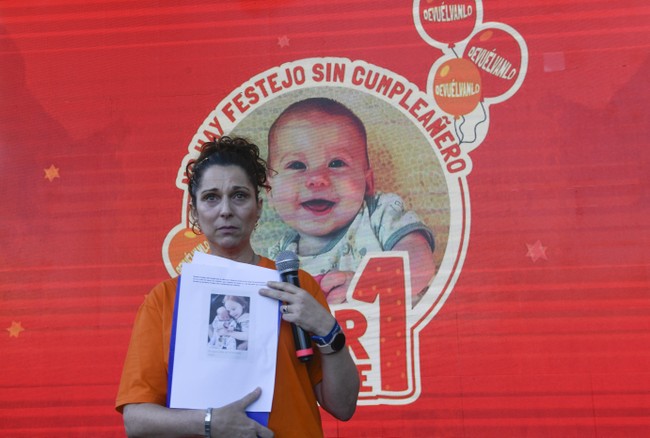Shocking Knife Attack: Austria Grapples with Tragedy
A tragic knife attack in Austria's Villach leaves a community mourning and prompts conversations about immigration and security amidst political and societal reactions.
Published February 17, 2025 - 00:02am

Image recovered from arabnews.com
The normally serene city of Villach in southern Austria was cast into turmoil this weekend following a shocking knife attack that left a young boy dead and several others injured. The incident has gripped the nation not only due to its violent nature but also because it has sparked a broader discourse on immigration and public safety in Austria.
According to police reports, a 23-year-old Syrian national carried out the assault in a seemingly random manner, wielding a knife against unsuspecting passersby in Villach's bustling streets. The attack claimed the life of a 14-year-old boy named Alex, a loss that has sent ripples of grief through the community. Police apprehended the suspect shortly after the incident, thanks in part to the courageous actions of another Syrian man who intervened by driving his vehicle toward the aggressor.
Investigations are ongoing as authorities seek to uncover a motive behind the attack. Initial assessments suggested a lack of clear reason, but later developments pointed towards possible radicalization, with authorities considering links to extremist ideologies. The Interior Minister, Gerhard Karner, emphasized the need for a thorough investigation, particularly into any affiliations with the Islamic State and potential online radicalization influences.
Villach is a city known for its peaceful co-existence, blending Mediterranean and Alpine cultures. The unsettling incident not only brings sorrow but also ignites debates around the safety and integration of immigrants within Austria's borders. The local governor, Peter Kaiser, called for stringent repercussions, reiterating that respect for laws and cultural values is non-negotiable for anyone residing in the region.
This sentiment was echoed by political figures from various parties, some of which leveraged the incident to highlight and critique the country's asylum policies. The far-right Freedom Party has long been vocal about tightening immigration controls, viewing such episodes as evidence of systemic failures in handling asylum seekers. They argue that the current situation reflects broader lapses in European Union immigration protocols.
Compounding the local tragedy are broader European tensions regarding migration and terrorism, with Austria's neighbors observing the unfolding situation. This scrutiny comes on the heels of other recent acts of violence in Europe, fueling media attention and intensifying public anxiety about security in border regions.
The response from Villach's residents has been one of somber solidarity, gathering in the streets with candles to honor the victims. Friends and family of Alex, a beloved member of the community, express their sorrow, emphasizing his cheerful nature and the positive impact he had on those around him. This collective mourning underscores the close-knit nature of the city, where people lean on each other for support during such trying times.
This tragic event also spotlights systemic issues within Austria's approach to integrating asylum seekers. The community reaction reflects both a fear of generalizing immigrants and a call for scrutinizing the processes that could potentially prevent such radicalizations. The Syrian community in Austria notably distanced themselves from the attack, highlighting their struggles and appreciation for the sanctuary Austria offers, while condemning acts of violence.
National discussions are underway, with experts and policymakers deliberating on potential reforms and enhanced measures to safeguard public areas from similar threats. The Austrian government is expected to emphasize preventive strategies, intensifying efforts to scrutinize and manage immigration lawfully but humanely, while ensuring national security.
Villach is on the road to recovery, seeking to rebuild its serene image while navigating the complex discussions provoked by this attack. This incident serves as a pivotal moment for Austria to reflect on its societal structures, addressing security concerns without compromising the values of empathy and diversity that define its communal life.







